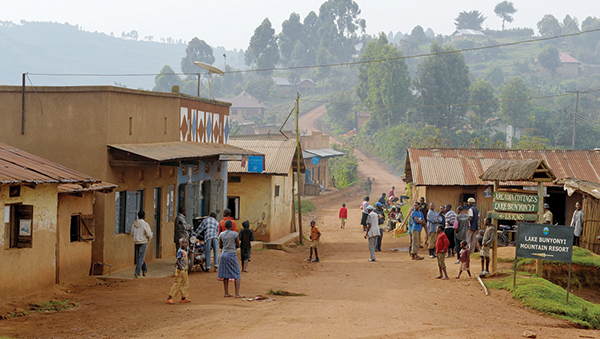A Trinity professor has co-authored a study that has found that community health programmes set up in Ugandan villages helped dramatically decrease child and infant mortality rates.
Dr Andrea Guariso, an assistant professor of economics in Trinity, was part of a study that sought to reduce child and infant mortality by using a network of community health promoters.
The promoters, who were employed by US-based company Living Goods and BRAC Uganda, an international NGO, were not officially medical professionals, but were trained to detect danger signs in the home, to diagnose and treat childhood illnesses, and to refer any severe cases to clinics.
The health promoters would go door-to-door in an “Avon-like” model to sell health goods, including anti-malarial medication, soap, and insecticide-treated bed nets.
The researchers found that, over a three-year period, death rates dropped by 27 per cent for children under the age of five and 33 per cent for infants.
Households visited by a health promoter were also five per cent more likely to have their water treated before drinking it, their children were 13 per cent more likely to have slept under an insecticide-treated bed net and homes with a newborn were 71 per cent more likely to get a follow-up visit in the first week after birth.
The results potentially offer a low-cost way to reduce sub-Saharan Africa’s high child and infant mortality rates.
The success of the programme was, in some cases, limited, and depended on the conditions of the existing facility-based professional healthcare. The study demonstrates the importance of collaboration between the programme and the existing health service provision strategy.
The study, which was published in the American Economic Journal: Applied Economics, was co-authored by Martina Björkman Nyqvist of the Stockholm School of Economics, Jakob Svensson of Stockholm University and David Yanagizawa-Drott of the University of Zurich.
In a press statement, Guariso said: “Our results provide two important lessons. The first is that by strengthening simple and basic healthcare provision it is possible to achieve dramatic improvements in health outcomes. The second is that we can do that at relatively low cost.”
The programme has also been launched in Kenya, Zambia, and Myanmar.
The World Health Organisation estimates that about one in thirteen children in sub-Saharan Africa still do not reach their fifth birthday.







